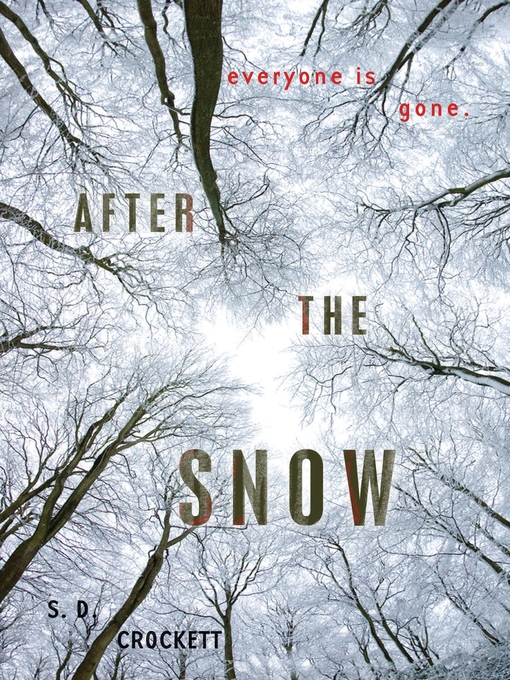The oceans stopped working before Willo was born, so the world of ice and snow is all he's ever known. He lives with his family deep in the wilderness, far from the government's controlling grasp. Willo's survival skills are put to the test when he arrives home one day to find his family gone. It could be the government; it could be scavengers—all Willo knows is he has to find refuge and his family. It is a journey that will take him into the city he's always avoided, with a girl who needs his help more than he knows.
S.D. Crockett on narrative voice and an especially cold winter:
What was your inspiration for After the Snow?
Well, apart from the unbelievably cold winter during which I was writing—in an unheated house, chopping logs and digging my car out of the snow; I think much of the inspiration for the settings in After the Snow came from my various travels.
In my twenties I worked as a timber buyer in the Caucasus Mountains of southern Russia, and that work led to travels in Eastern Europe and Armenia. As soon as I step off the plane in those places it smells like home.
It may sound strange to say, when After the Snow is set in Wales, but really the practical dilemmas in the book come directly from places I've been, people I've lived with, and the hardships I've seen endured with grace and capability. I was in Russia not long after the Soviet Union collapsed and I've seen society in freefall. Without realizing it at the time I think those experiences led me to dive into After the Snow with real passion.
What would western civilization look like with a few tumbles under its belt? What would happen if the things we took for granted disappeared? I wanted to write a gripping story about that scenario, but hardly felt that I was straying into fantasy in the detail.
What do you want readers to most remember about After the Snow?
We all have the capacity to survive, but in what manner? What do we turn to in those times of trouble? Those are the questions I would like people to contemplate after reading After the Snow.
How did Willo's unique voice come to you?
Willo's voice appeared in those crucial first few paragraphs. After that it just grew along with his world and the terrible situations that arise. I think his voice is in all of us. We don't understand, we try to make good—maybe we find ourselves.
How did you stay warm while writing this novel?
I banked up the fire—and was warmed by hopes of spring.
- Available now
- Try something different
- NYT Bestsellers - eBook Nonfiction
- NYT Bestsellers - eBook Fiction
- New eBook additions
- New kids additions
- New teen additions
- Most popular
- Albertson Collection
- See all ebooks collections
- NYT Bestsellers - Audiobook Fiction
- NYT Bestsellers - Audiobook Nonfiction
- Available now
- New audiobook additions
- New kids additions
- New teen additions
- Most popular
- Try something different
- See all audiobooks collections
- Popular Magazines
- Revistas
- Health & Fitness
- Cars & Motorcycles
- Home & Garden
- See all magazines collections





